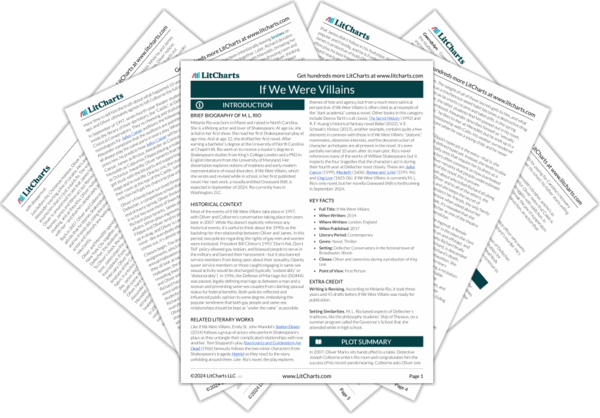Like
If We Were Villains, Emily St. John Mandel’s
Station Eleven (2014) follows a group of actors who perform Shakespeare’s plays as they untangle their complicated relationships with one another. Tom Stoppard’s play
Rosencrantz and Guildenstern Are Dead (1966) famously follows the two minor characters from Shakespeare’s tragedy
Hamlet as they react to the story unfolding around them. Like Rio’s novel, the play explores themes of fate and agency, but from a much more satirical perspective.
If We Were Villains is often cited as an example of the “dark academia” campus novel. Other books in this category include Donna Tartt’s cult classic
The Secret History (1992) and R. F. Kuang’s historical fantasy novel
Babel (2022). V. E. Schwab’s
Vicious (2013), another example, contains quite a few elements in common with those in
If We Were Villains: “platonic” roommates, obsessive interests, and the deconstruction of character archetypes are all present in the novel. It’s even partially narrated 10 years after its main plot. Rio’s novel references many of the works of William Shakespeare, but it inspects the four tragedies that the characters act in during their fourth year at Dellecher most closely. These are
Julius Caesar (1599),
Macbeth (1606),
Romeo and Juliet (1595-96), and
King Lear (1605-06).
If We Were Villains is currently M. L. Rio’s only novel, but her novella
Graveyard Shift is forthcoming in September 2024.
